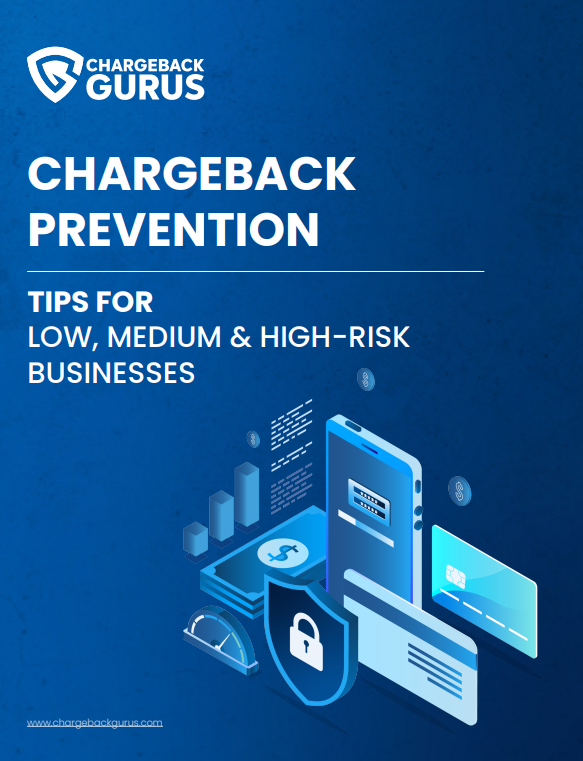How Chargebacks Impact Business Operations as a Whole
By Roenen Ben-Ami, Chief Risk Officer, Justt
Chargebacks are going beyond financial losses and pose significant operational hurdles for both brick and mortar stores and online merchants.
To understand the implications of chargebacks, it’s important to understand their purpose.
Understanding chargebacks and their purpose
Chargebacks serve as a consumer protection mechanism, allowing cardholders to dispute transactions and receive refunds. This protection is offered mostly in an attempt to combat transaction fraud but can sometimes be abused by consumers in situations where they feel bold enough to claim fraud in legitimate purchases.
The process isn’t quick either, most issuers have teams dedicated to manually reviewing and combing through transaction evidence.
While they offer a safety net for customers, chargebacks can, and often do, result in operational dysfunction in addition to the revenue lost.
When a chargeback is initiated, the merchant not only loses the revenue from the original transaction but also incurs additional fees and expenses.These fees include chargeback fees, processing fees, and administrative costs. Currently, it’s considered that for every $100 in chargebacks, a merchant actually loses $240 in total associated revenue when reviewing the opportunity cost of that time compared to spending it on progress.
Operational challenges posed by chargebacks
One of the most significant challenges that businesses face is the amount of time and resources required to manage them. The chargeback process can be lengthy and complex, and it often requires businesses to provide extensive documentation and evidence to support their case.
Staff time and resources dedicated to chargeback management
Merchants must decide whether to handle the dispute in-house or outsource to a third-party provider, and both options require training and expertise.
Managing them in-house requires staff, training, expertise and sometimes software tools. Staff members responsible for chargeback management need to understand the intricacies of the chargeback process, gather relevant documentation, and respond promptly to inquiries from banks or payment processors. Allocating resources and training staff specifically for chargeback management diverts attention and resources away from other critical operational tasks, or growing your business.
Outsourcing can be attractive but still results in additional business costs and data security risks.
Customer service and dispute resolution
Chargebacks can also have a ripple effect on customer service and dispute resolution.
Unresolved chargebacks can result in negative reviews and loss of goodwill, which can harm a business's reputation.
A strain on customer service departments is created when they are responsible for handling increasingly negative customer inquiries and resolving disputes. Dealing with chargeback-related issues requires additional communication and support to address customer concerns and provide necessary information during the dispute process. This can increase the workload for teams, affecting their ability to provide timely and satisfactory resolutions for other customer inquiries and support needs.
The potential for employee burnout when consistently being faced with negative disputes can’t be ignored.
Metrics Disruption
Chargebacks distort sales metrics and analytics when left unmanaged. A high volume of chargebacks affects key performance indicators, such as revenue, conversion rates, and customer lifetime value.
Other growth indicators like Return on Advertising Spend (ROAS), Average Order Value (AOV) and Net Promoter Scores (NPS) become compromised by failing to account for the entire disruption of a chargeback.
Distorted metrics make it challenging to assess the effectiveness of marketing campaigns, optimize product offerings, make informed business decisions and undermine the ability to measure and business performance effectively.
Vendor and Partner Relationships
By now it might be obvious that strained relationships with suppliers and business partners becomes a possibility.
When chargebacks occur, merchants often need to recoup the lost funds from a supplier or even absorb the financial loss themselves. This can lead to disputes, and potential disruptions in the supply chain, affecting the merchant's ability to source products or services efficiently.
Inventory
Can you ensure the item is returned?
Inventory management can be compromised when the sold products are returned or deemed invalid due to the chargeback.
Do you stock physical inventory?
Merchants need to account for the potential loss of inventory due to chargebacks when forecasting demand, replenishing stock, and managing reorder points. Why risk a stockout or overstock situation?
Who’s responsible for managing the logistics?
Coordinating the restocking process and managing reverse logistics can be complex. Merchants will need to establish efficient systems and processes to handle returned items, inspect their condition, update records, and determine whether the products can be resold or need to be refurbished.
Being aware is the key
Chargebacks are a reality of doing business, but merchants can take steps to mitigate their operational impact. By being aware of the potential operational issues, you can be proactive about eliminating future problems that need solving.
To gain a clearer understanding of the business costs associated with chargebacks and these operations, continue reading more about how chargebacks impact business financials as a whole.








